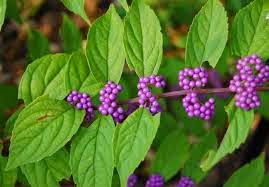This workshop was put on by the Master Gardeners of the Ozarks through the Taney and Stone County University of Missouri Extension. It is the 11th Annual Fall Gardening Workshop and was well attended at the Shepard of the Hills Lutheran Church in Kimberling City, Missouri. The level of professionalism and dedication of the members of this Master Gardeners group is something other University of Missouri Master Gardener groups could aspire too. My husband and I as well as several other Hickory County Master Gardeners know all too well that when we get notice of events in this area, we will not be disappointed for making the long drive.
Included in the $18 registration was a large variety of foods for a Continental Breakfast before the program which began at 8:30. Lunch was a lovely fresh salad, a pasta/chicken entree, fresh rolls and two cake choices. Of course, there were door prizes from nine different sponsors! There were a large number of plants and garden-related items that could be purchased.
The vendors that set up in the room included:
Art that Rocks - Marty Schmitt from Reeds Spring
Cedarbrook Garden Center - Melissa Pack from Branson West
The Flower Farm - Linda Lauer from Hollister
Hilltop Farm - Oscar and Amy Cross from Ash Grove
There were four topics: Death by Chlorophyll, Straw Bale Gardening, Organic Weed Control, and Bulbs for Fall Planting.
Death by Chlorophyll
Oscar Cross from Hilltop Gardens from Ash Grove presented his topic in a humorous twist on an otherwise deadly subject. He provided full color handouts on 32 different plants talking about how they all can have an interesting place in our gardens but warned "Don't eat them!" along with what would happen if they were consumed. Many were obvious such as poison ivy, dieffenbachia, Jimson weed, some mushrooms, castor beans, morning glories and poppies. In some phases of growth, some less known as dangerous plants can make you sick or worse, such as celery, mango, cashew, peace lily, rhubarb, hyacinth, tulip, daffodil, and raw kidney beans.
Straw Bale Gardening
Mark and Renae Bernskoetter are Master Gardeners from Springfield who presented another less known option to garden when the ground is not suitable because of soil conditions or too many rocks. The slide show had a variety of ways to set up raised gardens using up to eight bales with and without composted soil. Keeping the banded side outward, a small portion of the straw is removed to place a plant on top or the bales can be arranged so that composted soil and the plants are in between. As the bales break down, more bales will be added each year and eventually a nice composted raised garden area is produced naturally. The challenges are mostly with extra watering and fertilizer that would be needed compared to non-raised beds.

Organic Weed Control
Kelly McGowan, Horticulture Educator, University of Missouri Extension/Friends of the Garden, Springfield, had a detailed power point presentation that included weed biology and management choices. Most of the "organic" methods were obvious such as prevention, using flame weeding, drip irrigation, grazing animals, weed suppressive cover crops, soil solarization (cover area with plastic), and mulching. Organic Herbicides containing acetic acid (vinegar) and citric acid along with corn gluten meal as a pre-emergent were the only options provided. She also said that the University of Missouri Extension continues to study, but can not recommend, the old standby recipe of vinegar, salt, and dish detergent so many of us organic gardeners have been using for years with some success.
Bulbs for Fall Planting
Patrick Byers, Horticulture Specialist, University of Missouri Extension, Springfield, presented detailed information about all kinds of bulbs and bulb-like plants.
Not only did I come away from this workshop more knowledgeable but also inspired to use the information throughout my gardens, when needed. I also won the "Table Prize" because my birthday was the closest to the current date and I walked out with a huge Bleeding Heart perennial that was our table decoration! As we were leaving I noticed one of our table members had purchased an American Beauty Berry Bush from one of the vendors during one of the breaks. It was something I had been wanting for a couple years and was happy to find that the vendor had one left and for only $10! So after a couple hours drive back home, my husband and I found new happy places for our new plant family members. So now every Fall I will think about this wonderful workshop when I enjoy the bright purple berries of my American Beauty Berry Bush!
 |
| American Beauty Berry - Early Amethyst - Callicarpa dichotomy |
Sources: Beti Pearson, Hickory County Master Gardener and Missouri Master Naturalist and
Master Gardeners of the Ozarks and MU Extension
Posted: 10/11/2014







No comments:
Post a Comment